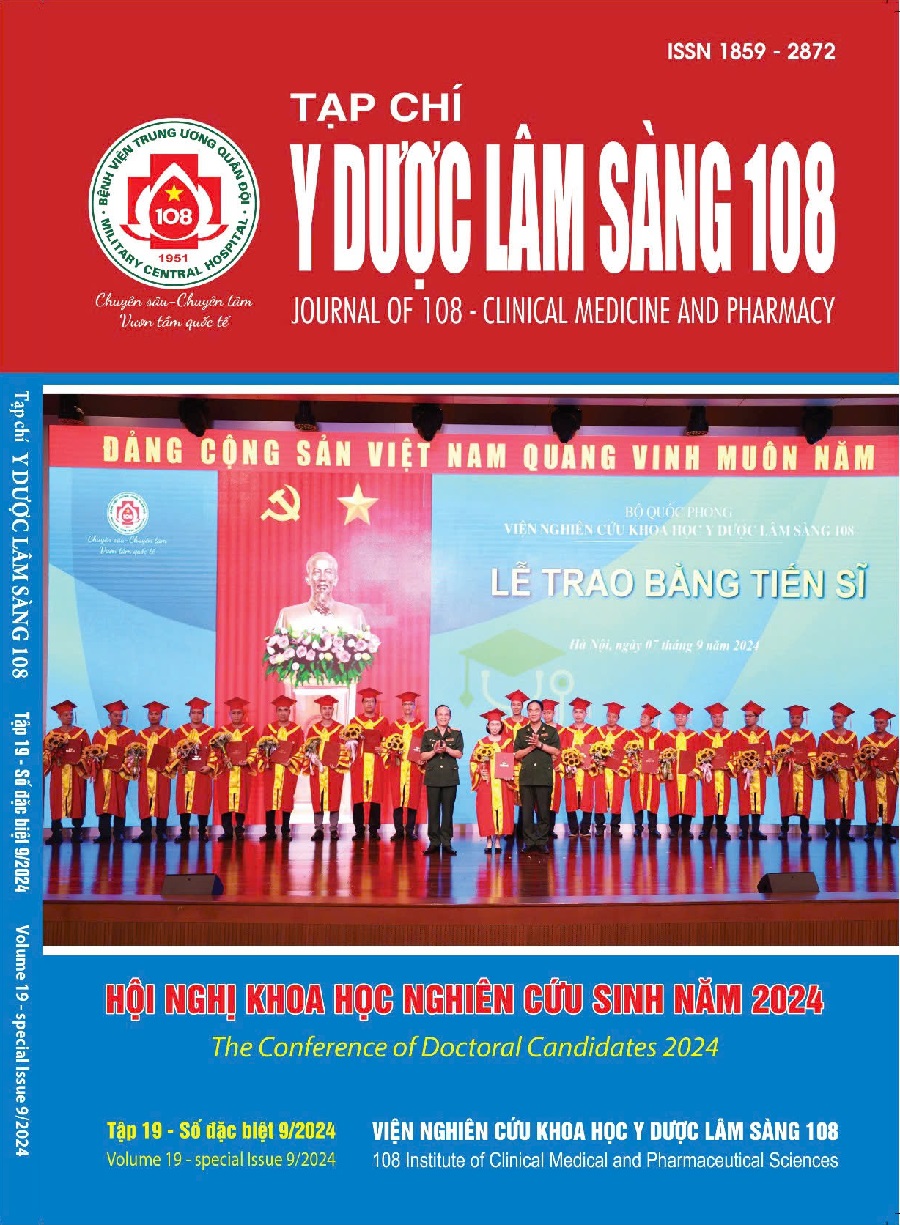The relationship between trust in physicians and quality of life among outpatients with hepatocellular carcinoma
Main Article Content
Keywords
Abstract
Objective: To evaluate the level of trust in physicians (TiP) related to quality of life (QoL) according to health aspects of patients with hepatocellular carcinoma (HCC) at 108 Military Central Hospital. Subject and method: A cross-sectional descriptive study was used on 166 outpatients with HCC. EQ-5D-5L and VAS versions for Vietnamese people and the TiP scale were used to measure QoL and TiP scores. Result: Mean age (61.43 ± 11.50), male rate (92.77%), Child-Pugh A (91.57%) and stage 3 of BCLC (59.64%). There were positive correlations between TiP with the QoL and VAS scores (p<0.05); Negative correlations between the TiP and aspects of QoL including: difficulty in self-care, difficulty in usual activities, pain/discomfort and anxiety/depression (p<0.05); Positive correlation between TiP and QoL according to treatment duration and specialistic doctors (p<0.05). Conclusion: Better TiP brought benefits to both physical and mental aspects of QoL among HCC outpatients at 108 Military Central Hospital.
Article Details
References
2. AlRuthia Y, Sales I, Almalag H, Alwhaibi M, Almosabhi L, Albassam AA, Alharbi FA, Bashatah A, Asiri Y (2020) The relationship between health-related quality of life and trust in primary care physicians among patients with diabetes. Clinical Epidemiology: 143-51.
3. Yokokawa D, Ohira Y, Ikegami A, Shikino K, Tsukamoto T, Noda K, Uehara T, Ikusaka M (2022) Relationship between the presence of primary care physicians and health‐related quality of life. Journal of General and Family Medicine 23(2): 87-93.
4. Mai VQ, Sun S, Minh HV, Luo N, Giang KB, Lindholm L, Sahlen KG (2020) An EQ-5D-5L value set for Vietnam. Quality of Life Research 29(7):1923-33.
5. Maly RC, Liu Y, Liang LJ, Ganz PA (2015) Quality of life over 5 years after a breast cancer diagnosis among low‐income women: Effects of race/ethnicity and patient‐physician communication. Cancer 121(6): 916-926.
6. Anderson LA, Dedrick RF (1990) Development of the Trust in Physician scale: A measure to assess interpersonal trust in patient-physician relationships. Psychol Rep 67(3): 1091-1100.
7. George D, Mallery P (1999) SPSS for windows step by step: A simple guide and reference. Contemporary Psychology 44: 100.
8. Thái Doãn Kỳ (2015) Nghiên cứu kết quả điều trị ung thư biểu mô tế bào gan kích thước trên 4 cm bằng phương pháp hóa tắc mạch với hạt vi cầu tải hóa chất. Luận án Tiến sĩ Y học, Viện nghiên cứu khoa học Y dược lâm sàng 108.
9. Poon RT , Fan ST , Yu WC , Lam BK , Chan FY , Wong J (2001) A prospective longitudinal study of quality of life after resection of hepatocellular carcinoma. Archives of surgery 136(6): 693-699.
10. Lee YY, Lin JL (2011) How much does trust really matter? A study of the longitudinal effects of trust and decision-making preferences on diabetic patient outcomes. Patient education and counseling 85(3): 406-412.
11. Dinç L, Gastmans C (2013) Trust in nurse-patient relationships: A literature review. Nursing ethics 20(5): 501-516.
 ISSN: 1859 - 2872
ISSN: 1859 - 2872
